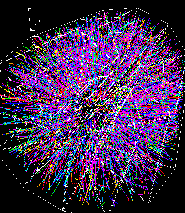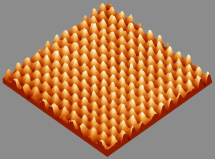
Physics is `the' fundamental science. The goal of physics is no less ambitious than to find and understand the laws that govern everything in the Universe starting from the behavior of the smallest building blocks of matter to the structure of the space-time and the Universe itself. Given all the wonderful variety of phenomena in the Universe and the size of the Universe, it is truly remarkable that human beings could conceive that such a goal is even possible. The discovery of relativity and quantum mechanics in the 20-th century gave us, for the first time in history, the hope that this goal may really be achievable. Today, we have a spectacularly successful theory called the `Standard Model' which together with the general theory of relativity provides the physical laws that govern all phenomena known to human beings so far. Does this mean everything can be understood by the Standard Model? The answer is, of course, no. First of all, the phenomena we have been able to observe and study are a tiny fraction of our Universe. Just as Newtonian mechanics gave way to quantum mechanics, our current understanding should give way to a new understanding if discoveries at the frontiers of physics demand so. Second, knowing the microscopic laws of physics does not mean that one understands all the macroscopic phenomena. There are unending varieties of surprises in nature such as how a cell functions or how materials at extreme temperatures behave that await further understanding.
At McGill, Professors and graduate students meet these challenges everyday with great enthusiasm. In condensed matter physics, we keep pushing the envelope of what materials can do. A new field of `soft matter physics' is also emerging strongly at McGill. In nuclear physics, McGill physicists are helping to re-create and study a new state of matter called quark-gluon plasma, which only existed during the first few micro-seconds after the Big Bang. Some of our particle physicists are in the hot pursuit of the superstrings and extra-dimensions. Wonderful discoveries in Astrophysics is constantly made by our physicists using the space-based and the ground-based telescopes.
The frontiers of physics are not just for the intellectual fulfillment.
Major life-changing discovery and development in technology were made by
physicists. These include the transistor and the laser, the two most
These are some of the areas in which physicists are trained during their graduate studies at McGill. Descriptions of different research programs are given later in these web pages. |
 Therefore a physicist, regardless of specialty, is someone who is excited by
these daily challenges: How do I find new phenomena? How do I understand
the new phenomena? How do I improve current theories and techniques to do
so? How do they all fit together?
Therefore a physicist, regardless of specialty, is someone who is excited by
these daily challenges: How do I find new phenomena? How do I understand
the new phenomena? How do I improve current theories and techniques to do
so? How do they all fit together? important ingredients of modern information technology. In addition,
physics has a tradition of expanding its domain of activity into new areas
where our unique viewpoint - our ability to identify universal features of
a problem, beyond the specifics of the problem in question - is of great
value. In particular, condensed-matter research has served as the bridge
from physics to other sciences, such as biology and chemistry, and
engineering.
important ingredients of modern information technology. In addition,
physics has a tradition of expanding its domain of activity into new areas
where our unique viewpoint - our ability to identify universal features of
a problem, beyond the specifics of the problem in question - is of great
value. In particular, condensed-matter research has served as the bridge
from physics to other sciences, such as biology and chemistry, and
engineering.